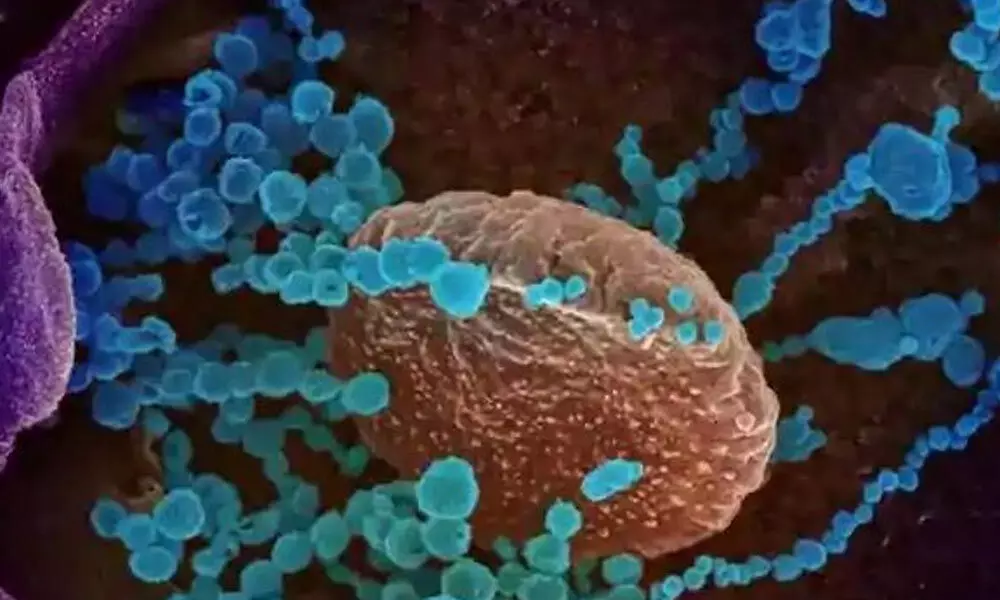IIT-Kgp finds method to study changes in virus-hit lung cells
The method finds and reports critical aspects of physiology, which are affected by SARS-CoV-2 infection, it promises to enable the discovery of therapeutic targets
image for illustrative purpose

WITH the second wave of coronavirus hitting India, along with many countries across the world, in what could lead to a better understanding of metabolic reprogramming and help the development of better therapeutics to deal with the viral pandemics, researchers at Indian Institute of Technology, Kharagpur (IIT-KGP), have, for the first time, reported a method to find an alteration in metabolic reaction rates inside lung cells when they are affected by virus/pathogens.
As the method finds and reports critical aspects of physiology, which are affected by SARS-CoV-2 infection, it promises to enable the discovery of therapeutic targets. The research has been published in the famous international journal PLOS Computational Biology.
Scientists have been trying to extract information from the human genome sequences for the past two decades to gather a better understanding of genetic disorders thus allowing us to penetrate deeper into the fabric of life and enable better therapeutics.
"We have used the gene expression of normal human bronchial epithelial cells inflected with SARS-CoV-2 along with the macromolecular make-up of the virus to create this integrated genome-scale metabolic model. The growth rate predicted by the model showed a very high agreement with experimentally and clinically reported effects of SARS-CoV-2," said Dr Amit Ghosh, assistant professor, School of Energy Science and Engineering, IIT-KGP.
Covid-19 pandemic has been posing unprecedented threats to the whole world. Among its many perils is the cellular metabolic system of those who tested positive. Coronaviruses are known to hijack the metabolism of lung cells. This threat makes it absolutely imperative to understand the mechanism of metabolic reprogramming of host human cells by SARS-CoV-2.
Another researcher in the project, researcher Piyush Nanda (B Tech –M Tech Dual Degree, Biotechnology, 2020, currently a graduate student at Harvard University), said: "In this model development, we have explored how metabolism works and how it is altered in diseases. Our work involved measuring how the tens of thousands or more complex chemical reactions change when biological cells are intruded on by an uninvited guest like SARS-CoV-2, which would help improve our understanding of diseases." Using the power of genomics the researchers posed the operation of reactions as a set of mathematical equations and solved it to obtain which reactions are altered in the cells when SARS-CoV-2 infects a person.
The researchers have also identified pathways like fatty acid synthesis and lipid metabolism that can be targeted by novel drugs. This model is based on genome-scale differential flux analysis (GS-DFA) in context-specific metabolic models.
"Analysis of the rates of all intercellular metabolic reactions in disease biology is opening up new avenues for therapeutic interventions. Numerous diseases lead to metabolic pathway alterations and it is becoming increasingly important to be able to quantify the difference under normal and diseased conditions. Using our method we have observed the alterations between diseased and normal metabolic states in the case of SARS-CoV-2 infection which have been proven using human patients data. The model will allow researchers to understand the wide spectrum of viruses that manipulate human metabolism and will help to design better therapeutics in Covid-19 treatment leveraging the power of systems biology," said Dr Ghosh.
The same confidence was echoed by Nanda. "A better understanding of metabolic reprogramming would aid in the design of better therapeutics to deal with the Covid-19 pandemic," said Nanda.

